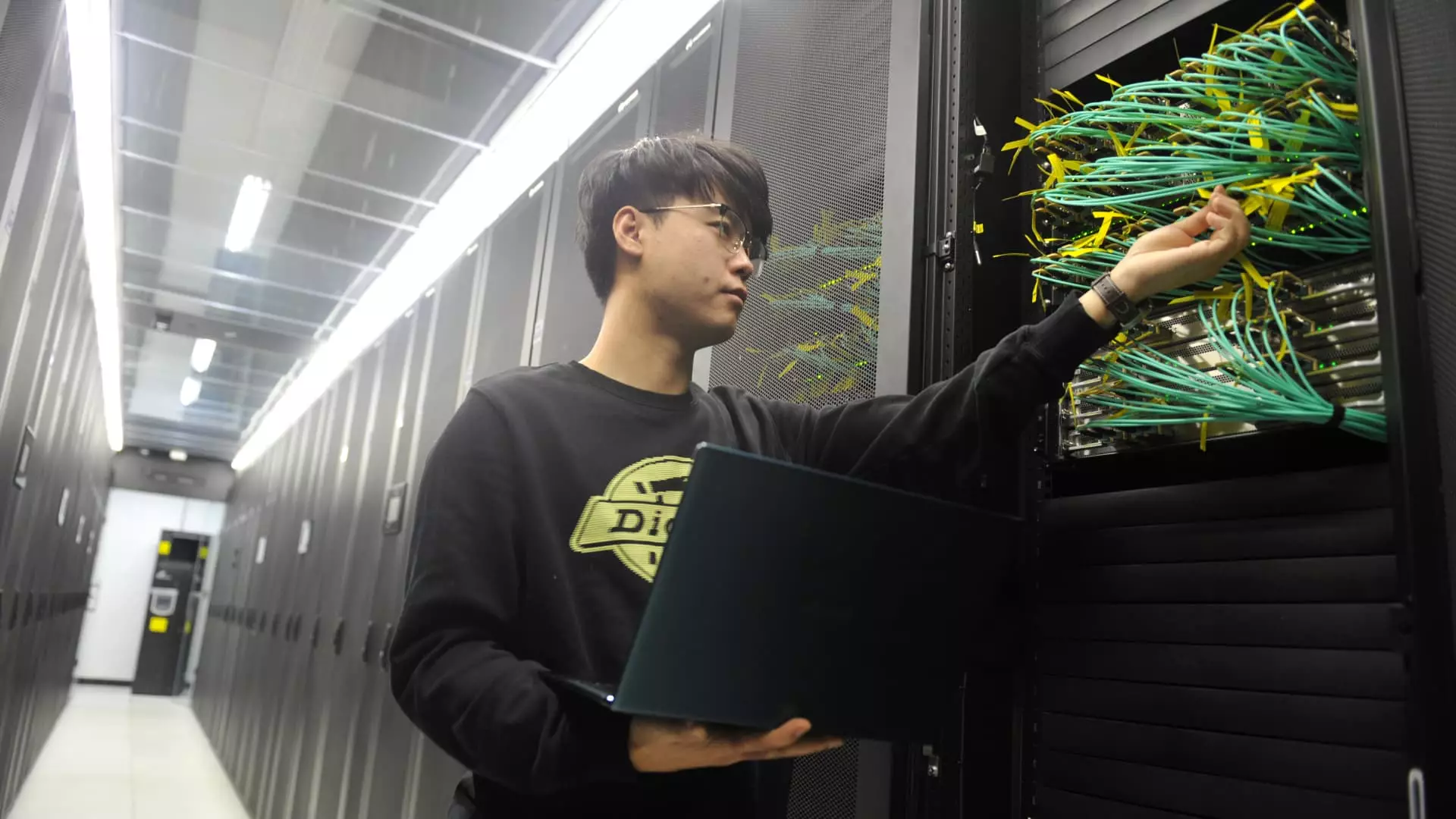Amid escalating trade tensions, analysts are cautiously optimistic about the potential rise of Chinese companies in the generative artificial intelligence (AI) sector. As U.S.-China relations sour, the launch of innovative AI solutions offers a glimmer of hope for market participants seeking growth against a backdrop of tariff adversities. While the narrative often tilts towards the implications of such geopolitical strife, it’s crucial to discern the unique opportunities arising from these economic hardships.
A report from Bernstein points to the burgeoning demand for AI technologies, predicting that local firms will increasingly invest in AI capabilities. The fiscal prudence incentivized by tariff pressures is leading many companies to rethink their growth strategies. For instance, the adoption of DeepSeek’s generative AI capabilities by multiple businesses underscores the strategic pivot towards advanced technologies. In a landscape battered by uncertainty, these companies are harnessing AI not merely as a tool for efficiency but as a strategic imperative that could potentially steer them towards greater profitability.
U.S.-China Tensions: A Double-Edged Sword
The ongoing trade war has undoubtedly escalated tensions, but it has also served as an impetus for domestic innovation within China. Interestingly, historical precedents suggest that periods of geopolitical strife can foster an environment for heightened local investment—evident during the earlier tenure of President Trump. As tariffs proliferate, localization policies are likely to emerge simultaneously, architecting a protective shield for domestic firms while bolstering their commitments to local technological advancement.
The Bernstein analysts project that the AI and chip ecosystems will be strategically impacted by governmental initiatives designed to mitigate tariff repercussions. This is far from a simplistic approach: it represents a belief in the necessity of self-sufficiency in critical technologies, allowing China to leverage internal capabilities while countering external pressures. The implications could stretch beyond economics, potentially solidifying China’s standing as a formidable force in the international tech arena.
The Resilience of Chinese Tech Giants
Shanghai-listed Kingsoft Office and Hong Kong-listed Kingdee illustrate the competitive spirit among Chinese tech firms, which are positioning themselves to ride the AI wave. Kingsoft’s integration of AI into its widely used word-processing app WPS is a quintessential example of innovation spurred by necessity. With nearly 20 million active users, the firm’s successful deployment of AI technology not only underlines the feasibility of local solutions but also highlights how adaptability can embed resilience in business growth trajectories.
Kingdee, pivoting towards an “Enterprise Management AI company,” reflects an increasing willingness to adjust business models in response to prevailing trends. This adaptability is crucial; companies that align their offerings with emergent technologies are likely to find reinvigoration even amidst a tumultuous economic climate. The gravitation towards AI is not merely a statistical consideration; it is, above all, an acknowledgment of technological evolution as a critical driver of future economic success.
The Bigger Picture: Cloud Computing and Infrastructure Investment
The ripple effects of escalating tariffs have provoked further investment in digital infrastructure and cloud computing, sectors relatively impervious to international disputes. As noted by analysts at Nomura, companies such as China Mobile stand to gain significantly, while others like GDS and Vnet are projected to see substantial revenue growth. Predicted utilization rates signal an imminent supply shortage, which only underscores the urgent need for advanced infrastructural development.
The Chinese government is likely fully aware of the necessity for a robust digital infrastructure framework. By fostering an environment conducive to investment in computing and data centers, Beijing aims to shepherd domestic growth and counteract the adverse effects of trade complexities. This proactive stance shows a clear understanding of the intertwined nature of technology and economic prowess, laying a strong foundation for future advancements.
A Cautious Optimism in a Trenchant Environment
While the specter of trade wars looms large, it appears to be galvanizing innovation and investment in the Chinese tech ecosystem. The emphasis on generative AI and digital infrastructure not only highlights the resilience of domestic companies but also reflects a broader strategic shift towards self-reliance in forming tech ecosystems. The potential for companies like Kingsoft and Kingdee to rise amid geopolitical strife is a compelling testament to the transformative nature of technology. While challenges abound, they unite in a narrative centered around determination, resilience, and the inexorable march towards technological advancement, indicating that even in the darkest of times, opportunity persists.

